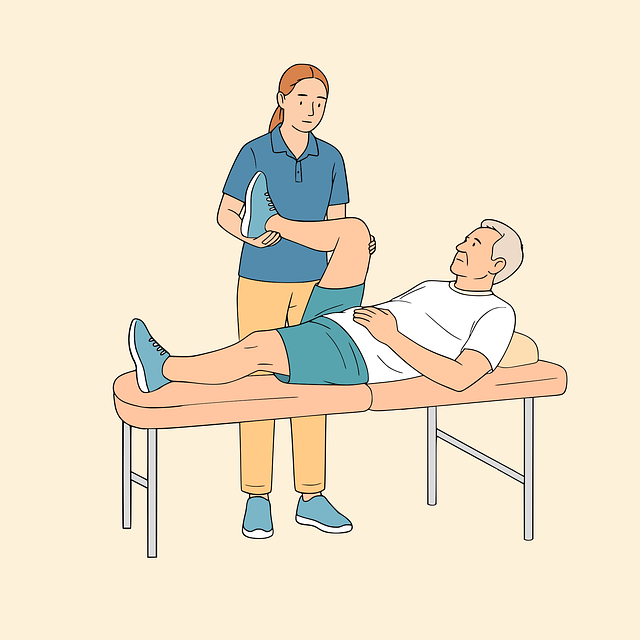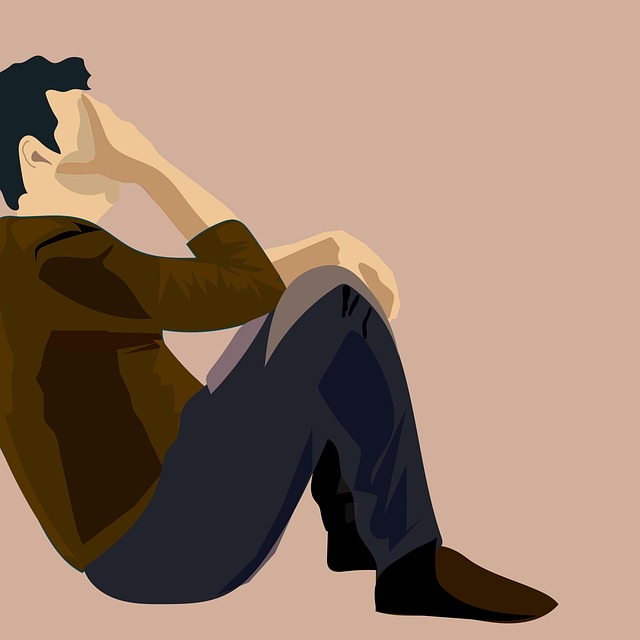Depression is a complex mental health condition affecting daily life, with symptoms including low mood, disinterest, appetite changes, sleep disturbances, fatigue, and thoughts of self-harm. Diagnosis involves evaluations by qualified depression therapists using standardized tools. These professionals offer therapy sessions using evidence-based methods like CBT, IPT, and mindfulness techniques to help individuals understand causes, develop coping strategies, and improve self-awareness. They create safe spaces for exploration, provide personalized support, and facilitate ongoing adjustments as clients work towards recovery. Beyond talk therapy, depression therapists integrate lifestyle changes such as exercise, balanced diets, and mindfulness practices for holistic depression management. Seeking help from these professionals is crucial in navigating and overcoming depression, leading to improved well-being.
Depression is a prevalent mental health disorder affecting individuals across various demographics. Understanding its symptoms and diagnosis is paramount in seeking effective treatment. This article delves into the crucial role of depression therapists and explores diverse therapeutic approaches, from Cognitive Behavioral Therapy (CBT) to other innovative methods. We also provide practical guidance on creating a supportive home environment, lifestyle changes, and when to seek professional help for depression.
Understanding Depression: Symptoms and Diagnosis

Depression is a complex mental health condition that significantly impacts an individual’s daily life and overall well-being. It’s more than just feeling sad or having a bad day; it’s a persistent state of low mood and disinterest in activities once enjoyed. Understanding depression involves recognizing its various symptoms, which can include feelings of sadness, hopelessness, changes in appetite and sleep patterns, fatigue, difficulty concentrating, and even thoughts of self-harm.
Diagnosing depression typically involves a comprehensive evaluation by qualified mental health professionals, such as depression therapists. They may use standardized assessment tools and questionnaires to gauge the severity and duration of symptoms. Through therapy sessions, these professionals help individuals uncover underlying causes, provide coping strategies, and offer personalized support tailored to their unique needs.
The Role of Depression Therapists in Treatment

Depression therapists play a pivotal role in the comprehensive treatment of depression, offering specialized support and evidence-based techniques to help individuals navigate their mental health journey. These professionals are equipped with advanced training in various therapeutic modalities, such as cognitive-behavioural therapy (CBT), interpersonal therapy (IPT), and mindfulness-based interventions, among others. Depression therapists create a safe and non-judgmental space for clients to explore the underlying causes of their depression, challenge negative thought patterns, and develop coping strategies tailored to their unique needs.
Through regular sessions, depression therapists guide clients in understanding the complex interplay between thoughts, feelings, and behaviours, fostering self-awareness and emotional regulation. They employ various techniques like exposure therapy, relaxation training, and problem-solving skills development to equip individuals with the tools needed to manage symptoms effectively. Moreover, these therapists facilitate connections with support systems, encourage adherence to treatment plans, and provide ongoing monitoring and adjustment as clients progress towards recovery.
Different Types of Therapy for Depression

Depression therapists employ various therapeutic approaches tailored to meet individual needs. One common method is cognitive-behavioral therapy (CBT), which focuses on identifying and changing negative thought patterns and behaviors contributing to depression. CBT helps individuals challenge distorted beliefs, develop healthier coping mechanisms, and gradually improve their mood and overall well-being.
Another effective approach is interpersonal therapy (IPT), particularly beneficial for those experiencing depression related to interpersonal problems or significant life events. IPT assists clients in improving communication skills, resolving conflicts, and fostering healthier relationships, thereby reducing symptoms of depression. Additionally, mindfulness-based therapies, such as Mindfulness-Based Cognitive Therapy (MBCT), have shown promise in preventing depressive episodes by teaching individuals how to stay present and non-judgmentally aware of their thoughts and emotions.
Cognitive Behavioral Therapy (CBT): A Step-by-Step Guide

Cognitive Behavioral Therapy (CBT) is a widely recognized and effective approach for individuals dealing with depression. This therapy type focuses on identifying and changing negative thought patterns and behaviors that contribute to depressive symptoms. CBT works by helping patients understand how their thoughts, feelings, and actions are interconnected and often create a cycle of depression.
The process begins with the therapist assessing the client’s current situation and setting specific goals. They will then guide the individual through several steps: challenging negative thoughts, identifying distorted thinking patterns, replacing these with more realistic and positive thoughts, learning coping strategies to manage symptoms, and gradually facing feared situations. This step-by-step approach empowers patients to take control of their mental health, offering them valuable tools to combat depression and improve overall well-being. Depression therapists use CBT to provide structured support, enabling clients to develop a healthier mindset and enhance their quality of life.
Other Effective therapeutic Approaches

In addition to talk therapy, there are several other effective therapeutic approaches for depression that depression therapists may employ. One such method is cognitive behavioral therapy (CBT), which focuses on identifying and changing negative thought patterns and behaviors contributing to depressive symptoms. This evidence-based practice has been proven successful in helping individuals manage depression by teaching them practical coping strategies.
Another notable approach is interpersonal therapy, designed to address relationship issues and social factors that may play a role in one’s depression. By improving communication skills and enhancing support systems, this type of therapy aims to create healthier interpersonal dynamics, thereby alleviating depressive episodes. Depression therapists might also integrate mindfulness practices or creative arts into treatment plans, offering alternative ways for individuals to process emotions and gain new perspectives on their mental health journey.
Building a Supportive Environment at Home

Creating a supportive environment at home is an essential step in managing and overcoming depression. This involves fostering an atmosphere that encourages healing, self-care, and open communication. Family members or caregivers can play a pivotal role by educating themselves about depression and learning effective ways to support loved ones battling this condition.
One practical approach is establishing daily routines that include activities promoting relaxation, such as gentle exercises or mindfulness practices. Additionally, setting clear boundaries and maintaining consistency in interactions can help individuals with depression feel more secure. Encouraging the involvement of depression therapists or counselors further enhances this process, providing specialized guidance tailored to each person’s unique needs.
Lifestyle Changes to Combat Depression

Depression can be effectively managed through a combination of therapy and lifestyle adjustments. One of the primary tools in combating this condition is working with depression therapists. These professionals provide a safe space for individuals to explore their thoughts, emotions, and behaviors, helping them develop coping strategies tailored to their unique needs.
Lifestyle changes play a significant role in depression management. Regular physical activity, a balanced diet, and sufficient sleep can substantially improve mood and overall well-being. Additionally, cultivating social connections, engaging in activities that bring joy, and practicing mindfulness or relaxation techniques can help individuals build resilience against depressive episodes.
When and How to Seek Professional Help

Depression can be a challenging and isolating experience, but seeking professional help is a crucial step towards recovery. The decision to consult a depression therapist should be taken when symptoms become persistent, severe, or interfere with daily life. Many people find that talking to a trained mental health professional provides them with the tools and support needed to manage their condition effectively.
When considering therapy, it’s essential to look for qualified depression therapists who specialize in evidence-based treatments like cognitive-behavioral therapy (CBT). These professionals offer a safe, non-judgmental space where individuals can explore the underlying causes of their depression, develop coping strategies, and work towards improving their overall well-being. Whether through individual therapy sessions or group support groups, professional help can play a pivotal role in overcoming depression and cultivating a brighter, more hopeful future.
